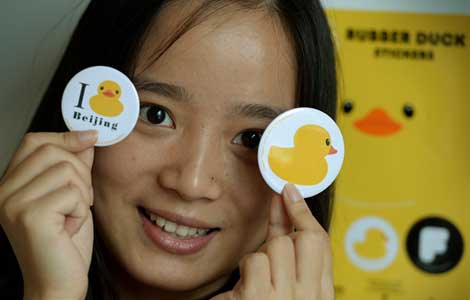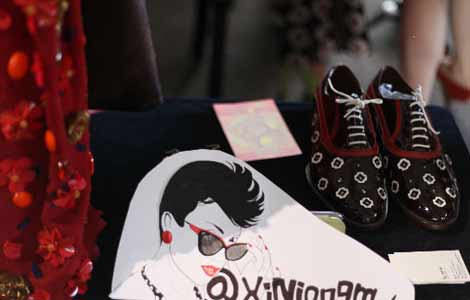'Mini human brains' grown from stem cells
Updated: 2013-08-29 16:21
(Agencies)
|
||||||||
Growing stem cells
To create their brain tissue, Juergen Knoblich and Madeline Lancaster at Austria's Institute of Molecular Biotechnology and fellow researchers at Britain's Edinburgh University Human Genetics Unit began with human stem cells and grew them with a special combination of nutrients designed to capitalise on the cells' innate ability to organise into complex organ structures.
They grew tissue called neuroectoderm - the layer of cells in the embryo from which all components of the brain and nervous system develop.
Fragments of this tissue were then embedded in a scaffold and put into a spinning bioreactor - a system that circulates oxygen and nutrients to allow them to grow into cerebral organoids.
After a month, the fragments had organised themselves into primitive structures that could be recognised as developing brain regions such as retina, choroid plexus and cerebral cortex, the researchers explained in a telephone briefing.
At two months, the organoids reached a maximum size of around 4 millimetres (0.16 inches), they said. Although they were very small and still a long way from resembling anything like the detailed structure of a fully developed human brain, they did contain firing neurons and distinct types of neural tissue.
"This is one of the cases where size doesn't really matter," Knoblich told reporters.
"Our system is not optimised for generation of an entire brain and that was not at all our goal. Our major goal was to analyse the development of human brain (tissue) and generate a model system we can use to transfer knowledge from animal models to a human setting."
In an early sign of how such mini brains may be useful for studying disease in the future, Knoblich's team were able to use their organoids to model the development of microcephaly, a rare neurological condition in which patients develop an abnormally small head, and identify what causes it.
Both the research team and other experts acknowledged, however, that the work was a very long way from growing a fully-functioning human brain in a laboratory.
"The human brain is the most complex thing in the known universe and has a frighteningly elaborate number of connections and interactions, both between its numerous subdivisions and the body in general," said Dean Burnett, lecturer in psychiatry at Cardiff University.
"Saying you can replicate the workings of the brain with some tissue in a dish in the lab is like inventing the first abacus and saying you can use it to run the latest version of Microsoft Windows - there is a connection there, but we're a long way from that sort of application yet."

 US vows action in Syria even without UN backing
US vows action in Syria even without UN backing
 Li Na advances to 3rd round
Li Na advances to 3rd round
 Obama, marchers mark 50 yrs since King's speech
Obama, marchers mark 50 yrs since King's speech
 Singers' son pleads not guilty
Singers' son pleads not guilty
 Rubber duck to float in Beijing
Rubber duck to float in Beijing
 New York Times, Twitter hacked by Syrian group
New York Times, Twitter hacked by Syrian group
 Five apps to help you 'breathe' in Beijing
Five apps to help you 'breathe' in Beijing
 Wozniacki survives battle with Chinese qualifier
Wozniacki survives battle with Chinese qualifier
Most Viewed
Editor's Picks

|

|

|

|

|

|
Today's Top News
Suspect charged in Beijing airport blast
87% of AIDS infections in China through sex
White paper issued on China-Africa cooperation
DC crowds reflect on MLK Jr's dream
China, US officials discuss defense ties
Obama undecided on Syria attack
Envoy to seek release of US citizen
China leads the way on multilateral defense co-op
US Weekly

|

|






